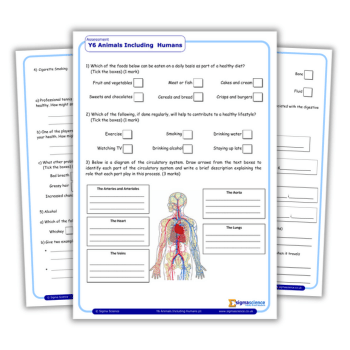Assessment is Moving in the Right Direction – But There’s Still Room for Improvement

Sarah Hannafin looks at the recent evolution of progress in schools

- by Teachwire

On the face of it, Progress 8 has a noble aim. It’s helpful to have a measure which shows something about how well a school is serving its pupils by looking at where they started and where they end up. NAHT supports the principle of Progress 8 but is troubled by how this is restricted by the EBacc accountability measure. Our discussions with government officials centre on improving the former and reducing the significance of the latter. The reality is that many schools are now trapped between a rock and a hard place when deciding upon which subjects to offer students in the future. On the one hand, school leaders will be determined to offer a wide range of subjects so pupils can choose GCSEs that best fit their abilities and aspirations.
But on the other, they’ve got the government’s performance measures to consider and the punitive consequences attached to the school’s data not meeting certain standards.
Impact and concerns
Generally, it is felt that Progress 8 does encourage progress across all cohorts and ability levels. However, NAHT has argued that the DfE must address the disproportionate impact which a few individual students have on school progress scores. In response, the DfE has started work on how the impact of outliers could be reduced, but there has been no change in methodology for 2017. This has caused unease for many school leaders and they face another year of hoping that next year will be better. Fortunately, the DfE is keen to involve NAHT in these developments.
As with all data, context is king and school leaders have concerns about the context of data this year. All the changes we’ve seen at Key Stage 4 mean that it’s impossible to directly compare any data from this year with any previous year’s data.
In our discussions with the DfE, we’ve raised our members’ issues regarding the changing point scores allocated to A*-G grades to the new 9-1 GCSE grades, the impact this might have on Attainment 8 and Progress 8, and the complexities of grade 5 being the new measure for accountability purposes rather than a grade 4.
A bigger conversation
But data produced using exam results are only a small part of the picture when judging a student’s success or a school’s effectiveness. NAHT has secured assurances from the Secretary of State that data should only be the starting point for a conversation about school performance and that no single piece of data should determine any decision on intervention.
Instead Ofsted, RSCs, local authorities and others should look at a range of data, alongside the school’s broader context and performance history, rather than focusing on one piece of information alone. This is the right thing to do. The landscape has never been more unfamiliar for secondary school leaders seeking to do the best for the pupils in their care. And this is an uncertain time for parents and employers, too. Given the technicalities and the complexities at play here, it would be easy for parents, employers and local media to misunderstand school and student level results data. The government has said that Progress 8 will continue to be the main measure by which schools are judged. Progress 8 is here to stay. So it’s essential to be clear about what the data suggests; but it is just as important to be clear about what it can’t tell us. Sarah Hannafin is a policy advisor at the National Association of Head Teachers (NAHT), leading the union’s work on curriculum and assessment.











